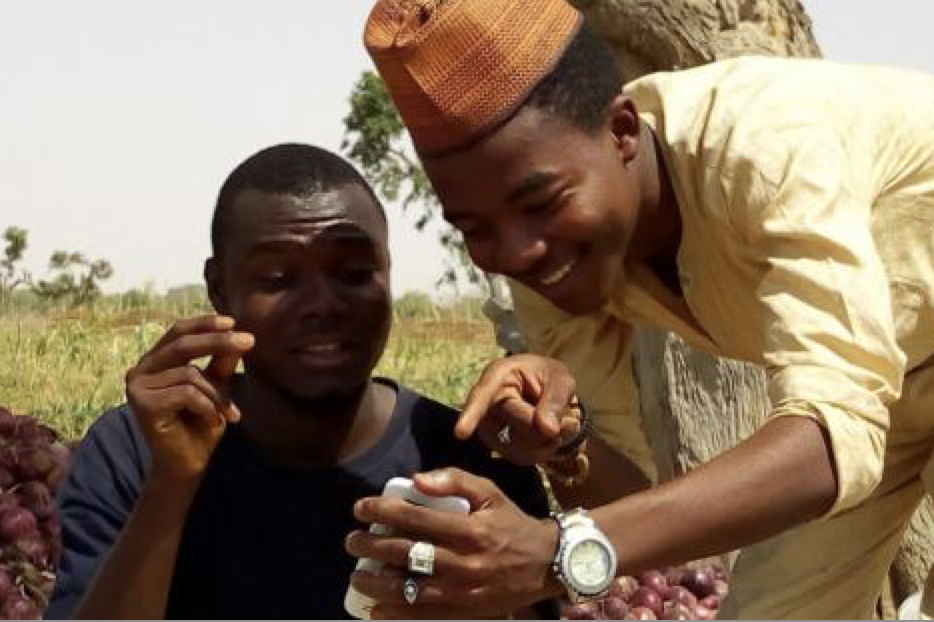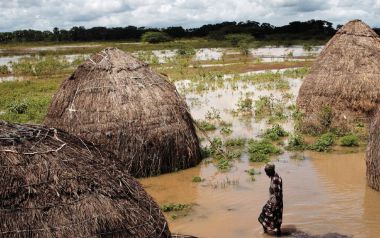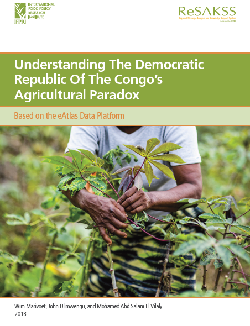Africa remains very vulnerable to effects of climate change. Mitigation and adaptation actions are needed and will be crucial because Africa will be facing intensely repeated droughts, floods, desertification, and change in rainfall patterns that will affect the continent’s agricultural calendar, productivity of crop and livestock systems, food security and thereby the livelihoods of millions of farmers particularly in Africa south of the Sahara.
Climate-smart agriculture (CSA) can play an important role in addressing the interlinked challenges of food security and climate change as its practices aim to achieve three closely related objectives: sustainably increase agricultural productivity, adapt to climate change, and mitigate greenhouse gas (GHG) emissions. Consequently, it is urgent for African decision makers to develop strategized policies that will enable more sustainable, and productive agricultural practices. In this line and to provide evidence based research findings to African policy makers, the International Food Policy Research Institute (IFPRI) and the African Union Commission (AUC) organized from October 25 – 27 the ReSAKSS’2017 annual conference, in Maputo Mozambique. The main theme of the conference was A Thriving Agricultural sector in a Changing Climate: Meeting the Malabo Declaration Goals through Climate-Smart Agriculture.
The 2017 ReSAKSS Annual Conference brought together about 160 participants to discuss findings of the 2016 Annual Trends and Outlook Report (ATOR) on climate-smart agriculture (CSA) and to review progress in supporting CAADP implementation. Participants included H.E Josepha Sako, African Union Commissioner for Agriculture (AUC), Mozambique’s vice Minister for Agriculture, IFPRI Director General Dr. Shenggen Fan, Africa Director Dr. Ousmane Badiane and representatives from NEPAD Planning and Coordinating Agency (NPCA), regional economic communities, African ministries of agriculture, civil society organizations, non-governmental organizations, universities, international and technical organizations, and development partners.
“CSA, with its multi-pronged approach, offers an opportunity to address the challenges of meeting future food security demands under a changing climate. Widespread adoption of CSA practices can boost agricultural production and trade, with a consequent reduction in food prices and poverty. CSA can also improve environmental security by increasing soil organic carbon content, or at least reducing soil carbon losses, thereby contributing to increased agricultural productivity in a more sustainable manner compared to current practices.”; said A. De Pinto co-author of the 2017 2016 Annual Trends and Outlook Report (ATOR).
Below are a listed some of the key messages stemming from the conference theme:
▪ The effects of climate change are expected to slow progress toward increased productivity of crop and livestock systems and improved food security in Africa south of the Sahara (SSA).
▪ CSA provides an integrated framework for addressing challenges presented by climate change by offering a set of approaches that aim to achieve three related objectives: i) sustainably increase agricultural productivity and incomes, ii) build resilience of food systems and farming livelihoods, and iii) reduce greenhouse gas emissions associated with agriculture.
▪ Widespread adoption of CSA practices in SSA has a positive effect on crop yields and production and induces a reduction in prices and a decrease in the number of those at risk of hunger and the number of undernourished children under five years.
▪ Adoption of CSA significantly increases both agricultural yields and net exports, which highlights the potential role of CSA in mitigating climate-induced risks in agricultural production and food security.
▪ Since the effectiveness of CSA practices depends on how widely they are adopted, it is essential to address barriers to adoption and introduce policies and incentives to overcome the barriers.
▪ Moreover, the effectiveness of CSA practices will require going beyond agricultural production at the farm level to consider entire value chains and relationships with other carbon-rich environments such as agroforestry.
▪ There are no silver bullets: climate smartness is highly dependent on local context and therefore broad-brush targeting of CSA interventions will not work.
▪ Analysis shows an inverse relationship (unholy cross) between profitability and adoption of CSA soil fertility management practices. Undoing the “unholy cross” will require increasing adoption of CSA by increasing the capacity of extension agents to provide advisory services on CSA, providing smallholder farmers with marketing advisory services, and improving farmers’ access to markets.
▪ “Blind farming,” i.e. farming without soil knowledge, is highly inefficient and exacerbates the challenges of addressing climate change. Thus, precision agriculture including soil analysis should be a key part of agricultural development and any risk management toolbox.
▪ Formal weather insurance can help smallholder farmers overcome barriers to CSA adoption by reducing risk and uncertainty associated with extreme weather events. The private sector has a role to play in scaling up formal insurance for farmers.
▪ It is essential to consider synergies and trade-offs among gender, nutrition, and climate change in the design, implementation, monitoring and evaluation of CSA approaches. This will help to ensure gender equality in the adoption of CSA and improve the effectiveness of CSA by maximizing the contribution of both men and women and considering implications of CSA practices for nutrition.
▪ Ecosystem-based adaptation and CSA approaches should not be viewed as silo climate resilience strategies but rather as part of an integrated solution for maximizing productivity of agricultural and food systems in order to achieve socioeconomic transformation in Africa.
▪ AUC/NPCA noted that findings of the 2016 ATOR provide a solid evidence-base on CSA for informing the current design of national agriculture investment plans (NAIPs).
The conference also included side-events that took place in parallel sessions providing space for ReSAKSS’ partners to share their research findings in support of evidence-based policy planning and implementation under the CAADP agenda.



